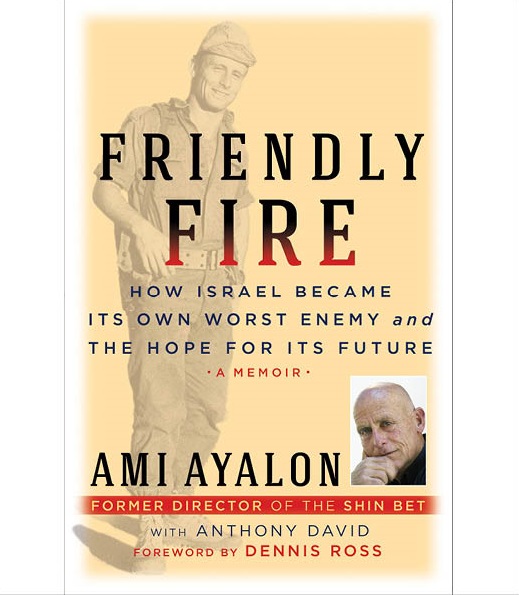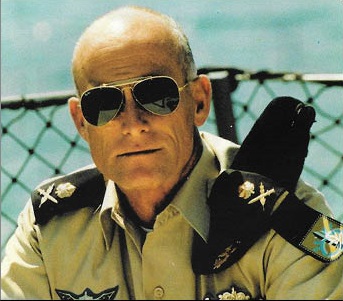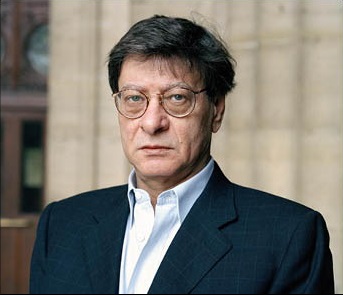“As you prepare your breakfast, think of others
(do not forget the pigeon’s food).
As you conduct your wars, think of others
(do not forget those who seek peace).
As you pay your water bill, think of others
(those who are nursed by clouds).
As you return home, to your home, think of others
(do not forget the people of the camps).
As you sleep and count the stars, think of others
(those who have nowhere to sleep).
As you liberate yourself in metaphor, think of others
(those who have lost the right to speak).
As you think of others far away, think of yourself
(say: “If only I were a candle in the dark”).”
Mahmoud Darwish
Ami Ayalon’s book is a compilation of an autobiography including his own personal journey from a warrior to a peacemaker and a review of the Israeli-Palestinian conflict. He narrates his adult life fighting for Israel’s security as naval and internal security officer. He builds his case to his countrymen that he is not advocating the two-state solution as a favor to Palestinians but sees this as the only solution to preserve Israel as a Jewish democratic state. He fears that continued occupation of Palestinians will end up Israel as ‘a dystopian society that is tyrannical for those under our boots, and toxic and self-defeating for all’.
Ami has the audacity of hope in a very depressing situation. My own two trips to Israel and Palestinian territories were focused on visiting the Crusader era and First World War era landmarks related to the Indian army. However, I interacted with a number of Israelis and Palestinians and found hardening of attitudes on both sides. The tech savvy Israeli youth are focused on advancing their careers and a number of young Palestinians were making every effort to get away from what to them is a large prison and seek a better life away from their homeland. Both these groups do not care much about everyday politics. Israeli society and politics have taken a sharp right turn and are using a single verse of the Bible in the Book of Genesis 15:18 ‘To your descendants I give this land’ as a property deed for the Jewish people and view Palestinians as mere squatters and holders of a stolen property. If this is the basis of the claim then they have to quote the whole verse that “On that day the Lord made a covenant with Abraham and said, “To your descendants I give this land, from the Wadi of Egypt to the great river, the Euphrates”. Will they simply be happy with the half of the covenant and not go for the whole inheritance from Nile to Euphrates?

The Palestinians are rapidly losing any hope of a two-state solution in view of the expanding Jewish settlements while rest of the Arab world is moving on with their lives. This impasse has given rise to many trends, but two prominent ones are two extremes of a single state where they will try to get their rights based on universal democratic principles and the other extreme of a continued war until final victory over Jews.
In 1981, when Ami was attending a course at the US Naval War College, a Pakistani Colonel approached him and told him, ‘Don’t permit the Israeli-Palestinian conflict to become a contest between Judaism and Islam. Don’t lift the lid off that Pandora’s box. We can live with Israel, and your fight with the Palestinians is of no interest to Pakistan. Just don’t fool around with the Islamic holy sites or use religion to justify your claims. That would tear apart the entire world”. Thirty years later, Ami saw both sides taking refuge in religion from their fears. As head of Shin Bet, for the first time, Ami had to run informants among hardline religious settlers and haul them in for interrogation. Ami has understood this dilemma that ‘the way we understand our history is the barrier to a real compromise because it controls our actions and fears, and therefore our future”. The religious right of Jews and Muslims are thumping their scriptures to claim the holy land. Jewish Rabbis and Muslim Imams are arguing about who are the chosen people of the Lord and resigned to the coming Armageddon. I reflected on these claims when I was visiting Megiddo, the place where this Armageddon is supposed to take place.

Ami is not a leftist or a peacenik. He is a realist who is willing to sit with opponents whether right wing religious fellow Israelis or Palestinians to understand their point of view. He comes on the peace table with stellar credentials. His whole life was spent as a warrior. He was a naval Commando and commanded elite naval commando force Flotilla 13, served as chief of Israeli navy and head of internal security Shabak (Shin Bet). Later, in pursuit of peace he joined politics and became a member of Israeli parliament, Knesset.
He brings hope to his people as well as to Palestinians and he is not alone in this endeavor. In 2012, he helped Israeli documentary film maker Dror Moreh, which was considered as a coup when five former Shin Bet heads sat in front of the camera and reviewed the policies of internal security. They concluded that continued occupation of Palestinian territories was bad for Israel. The film The Gatekeepers was the best documentary film in the Academy Awards nominations. Over two hundred former senior security officials from Israeli Defence Forces (IDF), Mossad, Sin Bet and police have formed an organization named Commanders for Israel Security. They see the two-state solution as a guarantee for Israel’s security. Ami has made the correct diagnosis that ‘We’re so trapped behind our own walls we can’t see what seems obvious to outsiders’. Israelis don’t need goyim (non-Jew) to tell them what is good for them. They need to listen to fellow Israelis who spent their lives defending the country.

“Tombstones break,
words pass, words are forgotten,
lips that uttered them turn to dust,
languages die like people, and other languages are resurrected,
gods in the heavens change,
gods come and go.
Prayers remain forever.”
Yehuda Amichai
Ami Ayalon with Anthony David. Friendly Fire: How Israel Became Its own Worst Enemy and the Hope for Its Future (Lebanon, New Hampshire: Steer Forth Press), 2020.




